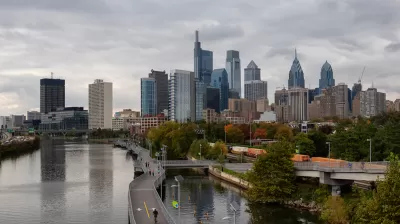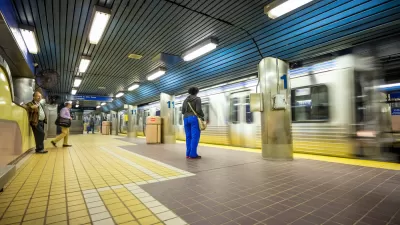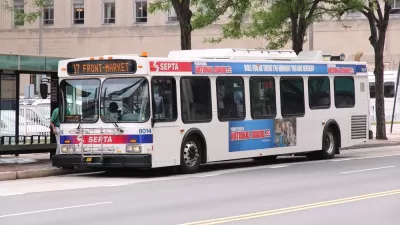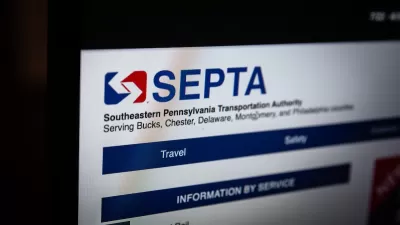The region's planning commission is pouring billions into highway widening projects while neglecting its public transit needs.

In an opinion piece, Ben She calls on Philadelphia's regional policymakers to boost transit funding and stop privileging suburban commuters with road widening and construction projects. Historically, She writes, "the Philadelphia region consistently advanced and prioritized highway expansions over transit, and our regional planning budgets prove it clearly."
The Delaware Valley Regional Planning Commission's long-range plan supports a "set of enormous transportation investments" in highway and road widening while SEPTA, the region's public transit agency, "has struggled to even advance its top four Projects of Regional Significance, which include modernizing Regional Rail and Trolley Modernization." Meanwhile, highway widening projects across the region are receiving upwards of $5 billion. "Not a single transit project has fully guaranteed funding, despite a report that pretends there is funding parity. Make no mistake: the quality-of-life of over 380,000 Market-Frankford El, trolley, and Regional Rail riders is in dire jeopardy in favor of slightly improving a suburban driving commute that may not even exist post-2020."
She encourages readers to "note the stark disconnect between DVRPC’s stated policy goals and what they’re actually funding in the budgets" and "urge local Congresspeople to support the upcoming budget reconciliation process so Philadelphia’s transit projects like Trolley Modernization can get funded with more federal support."
FULL STORY: It’s time to tell our regional planning overlords to stop throwing money at highways

Planetizen Federal Action Tracker
A weekly monitor of how Trump’s orders and actions are impacting planners and planning in America.

Maui's Vacation Rental Debate Turns Ugly
Verbal attacks, misinformation campaigns and fistfights plague a high-stakes debate to convert thousands of vacation rentals into long-term housing.

Restaurant Patios Were a Pandemic Win — Why Were They so Hard to Keep?
Social distancing requirements and changes in travel patterns prompted cities to pilot new uses for street and sidewalk space. Then it got complicated.

In California Battle of Housing vs. Environment, Housing Just Won
A new state law significantly limits the power of CEQA, an environmental review law that served as a powerful tool for blocking new development.

Boulder Eliminates Parking Minimums Citywide
Officials estimate the cost of building a single underground parking space at up to $100,000.

Orange County, Florida Adopts Largest US “Sprawl Repair” Code
The ‘Orange Code’ seeks to rectify decades of sprawl-inducing, car-oriented development.
Urban Design for Planners 1: Software Tools
This six-course series explores essential urban design concepts using open source software and equips planners with the tools they need to participate fully in the urban design process.
Planning for Universal Design
Learn the tools for implementing Universal Design in planning regulations.
Heyer Gruel & Associates PA
JM Goldson LLC
Custer County Colorado
City of Camden Redevelopment Agency
City of Astoria
Transportation Research & Education Center (TREC) at Portland State University
Jefferson Parish Government
Camden Redevelopment Agency
City of Claremont





























